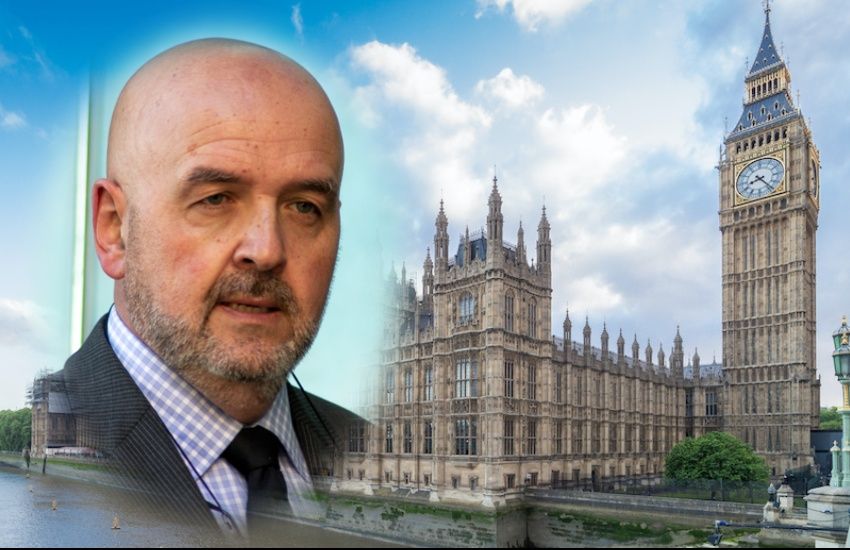


UK politicians have again been told of the importance of dialogue with the Crown Dependencies before seeking to legislate on the islands’ behalf, with Guernsey’s External Affairs lead arguing that doing so will prevent “unnecessary” constitutional crises.
The comments were made to the Justice Select Committee in the Palace of Westminster yesterday. Representatives from Guernsey, Jersey and the Isle of Man were present to advise a cross-party panel of MPs of the constitutional relationship between the jurisdictions and issues which have recently arisen.
Deputy Jonathan Le Tocq, Policy & Resources’ lead on foreign and constitutional affairs, raised the difficulties created by the chopping and changing of UK ministers who deal with the Crown Dependencies over the past few years.
He argued that constantly changing staff members who need to quickly get up to scratch with a complex brief has led to immediate issues needing to be directly lobbied for by the States, in lieu of strong representation of local interests by the UK’s Ministry of Justice.
He said it was not a situation “that should have occurred - not at all".
Deputy Le Tocq noted that there are “grave concerns” if these constitutional issues become “the norm”.
Very grateful to @CommonsJustice & its chairman @neill_bob for allowing my IoM & Jersey colleagues & I to raise some important & apposite issues & to answer questions relating to our unique constitutional position & current issues & objectives at yesterday’s committee hearing pic.twitter.com/EbyFXS8wcp
— Jonathan Le Tocq ???????? (@letocq) May 24, 2023
When asked if that special relationship between the UK and Crown Dependencies is well understood by MPs, Deputy Le Tocq said: “No, I don’t. I think this is a constant, and sadly, it seems to be an increasing issue, not only from members of the House of Commons, but also sometimes from the government."
He claimed this was clear when HM Government attempted to legislate on behalf of Guernsey and Jersey on the Brexit-linked Fisheries Act in 2020, and more recently on the controversial, and yet to be passed, Illegal Migration Bill.
In the first case a permissive extent clause, which can be inserted into UK laws to allow for the regulations to be extended to the Crown Dependencies, was included without the consent of the States of Guernsey or the Government of Jersey.
Deputy Le Tocq claimed he is still yet to glean why that happened nearly three years on, but he did offer a personal interpretation. “I think it was deemed… as not a big deal because it's only a permissive extent clause and we wouldn't need to enact it."
In the second case, Deputy Le Tocq said HM Government through the Home Office “initially” consulted with the islands on a draft version and a clause was agreed in principle, but by the time it was published the content was “significantly different” to what had been discussed.
“It seemed that the attitude was that the consultation that had been done earlier was sufficient and there wasn't any need for any further consultation. That is not the case because there are some significant parts of that final bill which is, you know, still going through parliament that is of great concern to us,” he said.
While stopping small boats crossing the Channel may be of political importance to the UK, it is not an issue for Guernsey and Jersey, he added.
“It never has been, and if you travel to the Channel Islands and you see the seas around us, no one in their right mind is going to try and cross in that way.”
Pictured: Deputy Le Tocq urged MPs to engage with the islands early.
“It goes against the international framework position that we had agreed over 15 years ago now, but also against the constitutional development of what was in place for hundreds of years. So that was of concern to us,” Deputy Le Tocq said.
He added that while the clause may not necessarily be enacted if included in bills, the threat of that happening without the explicit consent of Channel parliaments, including Alderney and Sark, “could cause unnecessary constitutional problems” as the laws “almost certainly” wouldn’t be adopted by the States.
“It would have to be debated and there will be a huge risk that the assembly would refuse to register it in debate, it wouldn't be sent forward, which would put us in a very difficult constitutional position, totally unnecessarily.
“There's no need because we would, and we have done on a regular basis, legislate appropriately for ourselves in those circumstances.
“Generally speaking, we are happy with permissive extent clauses. The system will work well and when we want the UK to legislate for us… we will ask to do so because we have already resolved that and dealt with the necessary democratic process in our islands.”
Deputy Philip Ozouf, Jersey’s External Relations Minister, agreed with what his Guernsey counterpart had said.
Comments
Comments on this story express the views of the commentator only, not Bailiwick Publishing. We are unable to guarantee the accuracy of any of those comments.